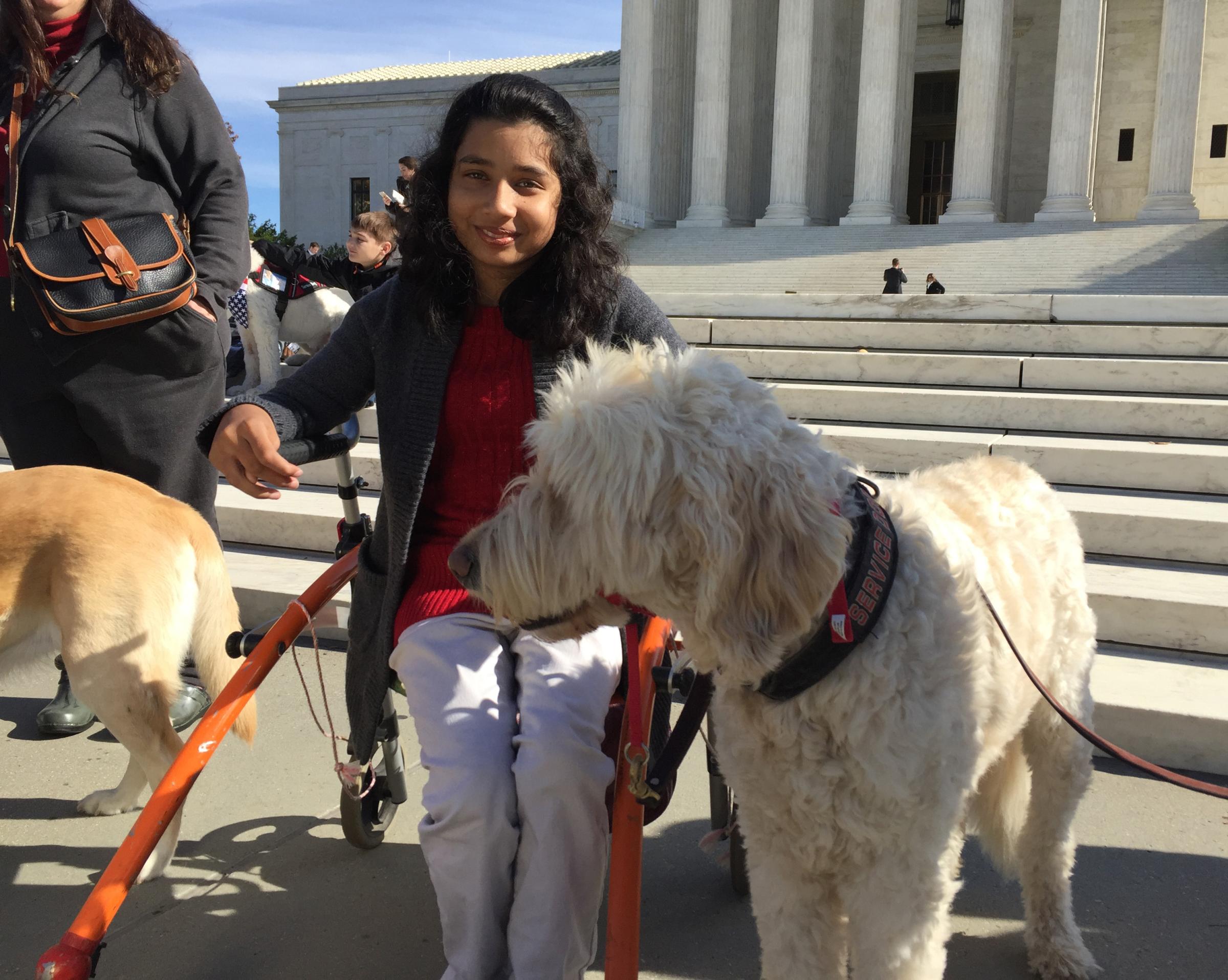The family of a Michigan girl with cerebral palsy who was barred from bringing her service dog to school is hailing a Supreme Court ruling in their favor as a victory for all children with disabilities.
Ehlena Fry, now 13, used to heavily rely on her Goldendoodle named Wonder to balance, open doors and turn off lights — some of the daily tasks she struggled with because she has a severe form of cerebral palsy which affects her legs, arms and body. But in 2009, when Ehlena was 5, the girl’s school district said her hypoallergenic and certified service dog was not allowed. While the school district slightly bowed to pressures from the American Civil Liberties Union of Michigan, which advocated on her behalf, the civil rights group said Wonder was still prohibited from being by Ehlena’s side for most of the day.
“It was devastating as a parent to see a child go through that,” Ehlena’s mother Stacy Fry told TIME on Thursday. “At school, where it was really most important for her to be accepted, which was key to her development, they essentially said no. Nobody deserves to be treated this way.”

Ehlena’s family made the decision to homeschool her, choosing not to separate her from Wonder, and then filed a federal complaint against the Napoleon School District and the Jackson County Intermediate School District. After several legal back and forths, the case landed before the Supreme Court. The nation’s highest court sided with Ehlena in a ruling on Wednesday that ultimately streamlines discrimination cases in federal court and allows the Fry family to sue for violations of the Americans with Disabilities Act.
“It’s our hope that this will set the precedent that’s needed to tear down the barriers,” Stacy Fry said. “We feel that this really is a victory for our family and all the families with children of differing abilities. For us, it really means that we did the right thing. It was not in vain. We had a bigger purpose.”
Neither school district returned requests for comment. Stacy Fry said Ehlena no longer needs the help of Wonder, 9, who is retired from his service and spends his days as the girl’s companion. The girl’s mother credits Wonder with teaching her daughter everything she needs to complete tasks on her own.
“He’s a companion. He’s her sidekick. He’s that constant reassurance,” she said. “He’s given her the confidence to navigate her environment more independently. Socially and emotionally, he has given her so much confidence to do the things that she wasn’t previously able to do. He was that bridge.”
“He was a great teacher,” she added.
More Must-Reads from TIME
- Caitlin Clark Is TIME's 2024 Athlete of the Year
- Where Trump 2.0 Will Differ From 1.0
- Is Intermittent Fasting Good or Bad for You?
- The 100 Must-Read Books of 2024
- Column: If Optimism Feels Ridiculous Now, Try Hope
- The Future of Climate Action Is Trade Policy
- FX’s Say Nothing Is the Must-Watch Political Thriller of 2024
- Merle Bombardieri Is Helping People Make the Baby Decision
Contact us at letters@time.com